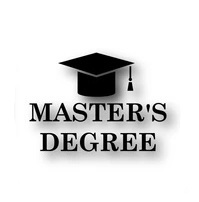Overview
i. To develop human resource capacity in Fisheries and Aquiculture Management.
ii. To develop entrepreneurship and relevant skills for industrial application in the fish value chain.
iii. To provide training and research in Fisheries and Aquiculture Management to improve food security and community livelihoods
Philosophy, Rationale
1. Philosophy
Kenya’s, and generally Africa’s population growth is the fastest globally. The question of food security for this population is the greatest challenge facing the peoples of Africa and their governments. There is also growing urge for improved standards of living, especially on demand for quality food that comprises a large proportion of animal protein. Affluence is on the increase. Elsewhere in the world, rise in affluence is associated with increase in consumption of animal products. As incomes rise, foods of animal origin must be made available locally or imported. It is well documented that for every 1% increase in income, 2% more is spent on food of animal origin. Therefore, demand for animal products has been increasing and will continue to increase in the foreseeable future. Consequently, the need for persons with critical ability to identify key challenges and find solutions that enables planning of production systems to meet the demand.
2.Rationale
There is increasing national and regional demands for Fisheries specialists. There is therefore need to develop a pool of such persons, who are qualified to conduct fisheries training in the universities as well as to carry out research in this field. This fisheries specialists will meet this need by equipping the graduates with specialized knowledge and competencies in fisheries specialists to perform specialized fisheries analyses, conduct scientific research, write scientific publications/reports and teach fisheries courses.
Application Information
Application Procedure;
Online application for Self Sponsored Students can be accessed through;
http://applications.uonbi.ac.ke
or from our satellite campuses and extra-mural centers countrywide.
Enquires relating to specific courses may also be made to the Head of the Department concerned or by visiting the University of Nairobi website
www.uonbi.ac.ke
Application for undergraduate programme and information regarding all undergraduates courses may be obtained from the:
Academic Registrar, University of Nairobi,
P.O Box 30197-00100,Nairobi,Kenya
www.uonbi.ac.ke/admissions
Mode of Delivery
The course shall be offered face-to- face either as full-time or part-time, or through Open, Distance and e-Learning (OdeL) modes of study.
Candidate shall be required to attend at least 2/3 of the class sessions and related learning activities offered for each of the coursework units in the first year of study before sitting for the respective examinations. A candidate shall be required to undertake coursework for all courses offered in each semester of the first year of study. On successful completion of the coursework, students shall carry out a supervised research project on a specialized field of Animal Nutrition and Feed Science, write and submit a thesis for examination at the end of the study period.
2. Open Distance and e-Learning (ODeL):
The Open, Distance and E-Learning programme will run for two (2) semesters of fifteen (15) weeks each. This module is largely home and or office-based and includes:
- Written self-instructional study modules including
- Course study materials e.g. booklets
- Relevant literature
- Interactive devices and self-tests
- Face to face introductory tutorials.
- Mediated technical learning materials for example: Audio visual; E-Iearning.
- Support study centres at the University of Nairobi.
- Access to information through computers at the University of Nairobi and other resource centres.
- Use of libraries at the University of Nairobi and other institutions.
This is combination of traditional, face-to-face learning and online digital learning
Contacts of support persons
Chairman, Department of Animal Production
Email Address; aniprod@uonbi.ac.ke.
Phone no; +254 204916024
Contact person; Prof.J.O.Junga
Email address; joseph.junga@uonbi.ac.ke
Structure
Structure
Course structure and Duration:
The Degree course shall consist of 41 Units;comprising lectures,practicals,demonstrations,seminars,field and industrial training/attachment,Research project and examinations.The programme shall be offered via two modules;full time (Module I and II) and through Open Distance and Electronic Learning (ODeL) (Module III).
FULL-TIME:
i. A candidate shall take a minimum of 4 academic years and a maximum of 8 academic years.
ii. Each academic year shall be divided into two semesters each, except during the third year of study which will have a third semester.
iii. Each semester shall consist of 15 weeks inclusive of teaching and examinations, while the third semester shall be 8 weeks.
iv. A candidate shall be required to undertake training and complete all the course work and practical assignments that are prescribed for th Bachelors of Science in Fisheries and Aquaculture Management.
v. A candidate shall be required to take a relevant Field Attachment during the third semester at the end of the third year of study and Industrial Training and Attachment in the First Semester of the fourth year of study. The candidate shall identify the institution(s) for attachment, which shall be approved by the Faculty Projects and Attachment Committee.
vi. During the third semester of the third year and first semester of the fourth year of study, a candidate will be required to develop a research project proposal relevant to any field of Fisheries and Aquaculture Management. The project proposal shall be executed and a technical report submitted for examination to the Faculty Projects and Attachment Committee, at least six weeks before the end of the final semester of study. A candidate shall be expected to consult their supervisors while developing and executing the project proposal and preparing the technical report.
-
Schedules of Intake:
-
The intakes for both Undergraduates and postgraduates students is scheduled for September every year.
-
For more information on schedules of intake use this link:onlineapp@students.uonbi.ac.ke
Admission Requirements
Admission: K.C.S.E Candidates
The common admission requirements for the Bsc.in the Faculty of Veterinary Medicine,University of Nairobi shall apply.In addition,applicants with the following minimum qualifications shall be admissible.
1.K.C.S.E with mean Grade C+ or equivalent with atleast C in Biology,or Biological Science,and any one of the following subjects; Chemistry,Physics,Physical Sciences,Agriculture,Mathematics or Geography
2.KCSE mean grade C-or equivalent plus a Certificate and Diploma in the relevant field from am institution recognized by the Senate.
3.'O' level Division II or equivalent with the subjects indicated above ,plus a Diploma in relevant field from an institution recognized by the Senate.
4.'O' level Division III or equivalent plus a Certificate and Diploma in the relevant field from institution recognized by the Senate.
5.Diploma in Biological Sciences or relevant field from an institution recognized by the Senate and a mean grade C in KCSE or equivalent.
6.'A' level with two principal passes or equivalent in Biology ,and any one of the following subjects;Chemistry,Geography,Physics or Mathematics.
7.Higher National Diploma in Biological Sciences or relevant field from an institution recognized by the Senate and should have attained a mean Grade C in KCSE or Equivalent.
8. Bachelor of Science Degree in Biological Sciences from an institution recognized by the Senate.
9.Equivalent qualifications to the above from institutions recognized by the Senate.
Careers
i. One can be a public servant in the ministry of Livestock and Fisheries
ii. One secure jobs in the fisheries private farms.
iii. Self employments (entrepreneurship opportunities)
iv. Research institutions like ILRLI,ICIPE,KARLO
Attachment Oppportunities
. Research institutions like ILRLI,ICIPE,KARLO
Fees and Funding
| BACHELOR OF SCIENCE IN FISHERIES AND AQUACULTURE MANAGEMENT - J49 | |||
| YEAR 1 -11UNITS | Semester 1 | Semester 2 | TOTALS |
| TUITION | 162,000 | 162,000 | 324,000 |
| ICT SERVICES - (PER YEAR) | 7,000 | - | 7,000 |
| EXAMINATION (PER UNIT @1000) | 5,000 | 6,000 | 11,000 |
| REGISTRATION (PER SEMESTER@2250) | 2,250 | 2,250 | 4,500 |
| ID CARD ( PER YEAR) | 1,000 | - | 1,000 |
| STUDENT ORGANISATION(PER YEAR) | 1,000 | - | 1,000 |
| CAUTION - (ONCE) | 5,000 | - | 5,000 |
| MEDICAL FEE (PER YEAR) | 6,500 | - | 6,500 |
| ACTIVITY-( PER YEAR) | 2,000 | - | 2,000 |
| LIBRARY (PER YEAR) | 4,000 | - | 4,000 |
| Bsc.-Fisheries and aquaculture management-Y1 | 195,750 | 170,250 | 366,000 |
| YEAR 2 -11UNITS | Semester 1 | Semester 2 | TOTALS |
| TUITION | 162,000 | 162,000 | 324,000 |
| ICT SERVICES - (PER YEAR) | 7,000 | - | 7,000 |
| EXAMINATION (PER UNIT @1000) | 5,000 | 6,000 | 11,000 |
| REGISTRATION (PER SEMESTER@2250) | 2,250 | 2,250 | 4,500 |
| ID CARD ( PER YEAR) | 1,000 | - | 1,000 |
| MEDICAL FEE (PER YEAR) | 6,500 | - | 6,500 |
| STUDENT ORGANISATION(PER YEAR) | 1,000 | - | 1,000 |
| ACTIVITY-( PER YEAR) | 2,000 | - | 2,000 |
| LIBRARY (PER YEAR) | 4,000 | - | 4,000 |
| Bsc.-Fisheries and aquaculture management-Y2 | 190,750 | 170,250 | 361,000 |
| YEAR 3 -11UNITS | Semester 1 | Semester 2 | TOTALS |
| TUITION | 162,000 | 162,000 | 324,000 |
| ICT SERVICES - (PER YEAR) | 7,000 | - | 7,000 |
| EXAMINATION (PER UNIT @1000) | 5,000 | 6,000 | 11,000 |
| REGISTRATION (PER SEMESTER@2250) | 2,250 | 2,250 | 4,500 |
| ID CARD ( PER YEAR) | 1,000 | - | 1,000 |
| MEDICAL FEE (PER YEAR) | 6,500 | - | 6,500 |
| STUDENT ORGANISATION(PER YEAR) | 1,000 | - | 1,000 |
| ACTIVITY-( PER YEAR) | 2,000 | - | 2,000 |
| LIBRARY (PER YEAR) | 4,000 | - | 4,000 |
| Bsc.-Fisheries and aquaculture management-Y3 | 190,750 | 170,250 | 361,000 |
| YEAR 4 -2UNITS | Semester 1 | Semester 2 | TOTALS |
| TUITION | 162,000 | 162,000 | 324,000 |
| ICT SERVICES - (PER YEAR) | 7,000 | - | 7,000 |
| EXAMINATION (PER UNIT @1000) | 1,000 | 1,000 | 2,000 |
| REGISTRATION (PER SEMESTER@2250) | 2,250 | 2,250 | 4,500 |
| ID CARD ( PER YEAR) | 1,000 | - | 1,000 |
| MEDICAL FEE (PER YEAR) | 6,500 | - | 6,500 |
| STUDENT ORGANISATION(PER YEAR) | 1,000 | - | 1,000 |
| ACTIVITY-( PER YEAR) | 2,000 | - | 2,000 |
| LIBRARY (PER YEAR) | 4,000 | - | 4,000 |
| Bsc.-Fisheries and aquaculture management-Y4 | 186,750 | 165,250 | 352,000 |
| Grand Total | 1,440,000 |



